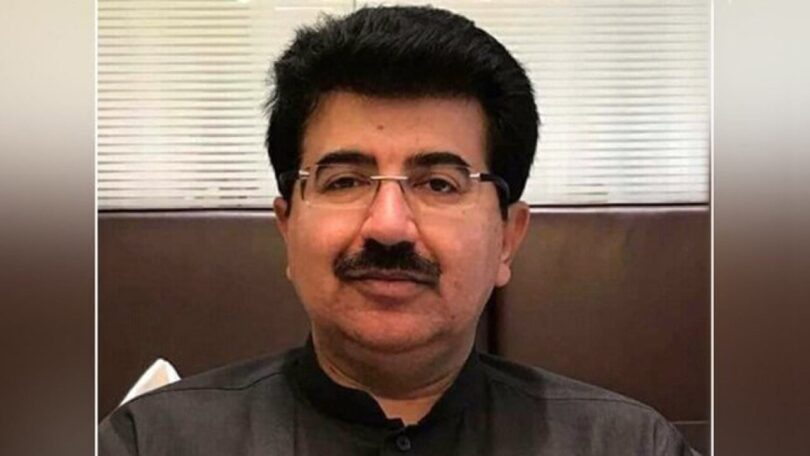The acting President and Senate Chairperson Sadiq Sanjrani has recently issued an order notifying an increase of 20% in the monthly salaries of Supreme Court judges. According to a spokesperson of the law ministry, the monthly salary of the Chief Justice of Pakistan has been increased to Rs1.2 million while the monthly salary of other Supreme Court judges has been raised to Rs1.1m. As said, the changes are to come into effect immediately and this will mark an increase of around Rs2,04,865 in the top judge’s remuneration.
Judges and the judiciary play an important role in the administration of justice, protection of the constitution, and maintenance of the law and writ of the state in the country. As a reward, the nation pays them hefty salaries, gruesome perks, mammoth allowances, luxurious accommodations, modern vehicles, special security, and extraordinary protocol along with a suitable number of domestic helps, to provide them with a conducive environment to discharge their duties. At the time, Pakistan’s senior adjudicators are drawing several times more salaries, service perks, and other entitlements as compared to the judges of other nations in the region including India, Bangla Dash, Sri Lanka, Nepal, Afghanistan etc. Unfortunately, despite enjoying uncommon incentives and stunning amenities in an economy-ridden country, the world justice projects Rule of Law Index Report 2022 listed Pakistan as 129th out of 139 countries in the world. That is a slap on the face of our entire judicial system including the Police, bar, and bench as well as district and top judiciary in the country which fails to bring reforms, eradicate corruption, and end nepotism from this highly important and most sacred institution in the country. Ironically, Pakistani influentials had been more conscious about their public rating, media coverage, monetary interests, and luxurious family life instead of official responsibilities, institutional prestige, and service delivery to the public. Factually, numerous successive chief judges earned the utmost media attraction through flashy announcements, and involvement in government and political affairs but failed to deliver justice and reform their institution over the past seven decades.
Historically, the judiciary has always been an important state organ and a thumbnail of democracy in any country. In most nations across the globe, the people wearing black robes often remain off the camera, fulfilling their sensitive responsibility in a calm atmosphere while their verdicts speak loud and have long-lasting effects on their nation and beyond. The Universal Human Rights Declaration and UN Human Rights Office (UN OHCHR) categorically endorsed the independence of the Judiciary and also called for judicial legitimacy, public trust, efficiency, and accountability of the adjudicators/Judges. The role of the judiciary and administration of justice is very crucial, as that addresses contemporary legal and administrative challenges and responds to broader social needs. Thus, the judiciary sets on top of a political system in a democracy, avails autonomy, and enjoys high prestige, but always remains under strict scrutiny from the media and civil society for its service delivery and performance.
Unfortunately, Pakistan’s judicial system derailed from its track after its failure in defending the country’s democracy in the face of the first Martial law just years of the nation’s independence. later, the discovery of the theory of necessity and judicial recognition of recurrent dictatorial rules further weakened the courts while institutional cartelization, corruption, nepotism, and political affiliation of adjudicators completely collapsed the judicial system in the country. Currently, a majority of cases are being settled by the parties out of the court, and no criminal or civil case concludes without paying bribes to investigators, prosecutors, and judicial staff while judges announce decisions to appease relatives, colleagues, a civil or military establishment for appeasement or favor.
Historically, Pakistan’s superior judiciary has sometimes moved beyond its constitutional jurisdiction after the lawyers’ movement and sometimes it is arbitrating political disputes to play a power broker role within the existing political system in parallel to parliament and military. The role of the judiciary becomes more crucial after judicial activism, and judicialization of politics, that is the expansion of judicial decision-making into political arenas, and the interplay between the institutions or political groups. According to reports, currently more than 52, 000 cases are pending trial in the apex court while these numbers are in millions in the lower/district courts and prolonged delays in under-trial cases badly shattered the public trust in the judiciary. There is a dire need that the judges sitting in the top courts to pay back to the nation by feeling their responsibility regarding the delivery of unbias, fearless and timely justice to the public, which will not only restore their respect in the country but elevate their ranking at the global forums.







